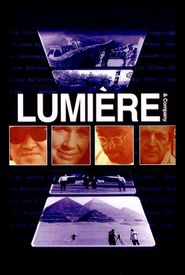Kabore's entrance into the realm of filmmaking began at the esteemed Centre d'Etudes Superieures d'Histoire d'Ouagadougou, where he initially embarked on an academic journey focused on the study of history, marking the initial stage of his academic pursuit. However, his academic trajectory underwent a significant transformation when he received a master's degree in Paris, which sparked his interest in the manner in which Africa was portrayed abroad, thereby prompting him to delve deeper into this captivating topic. This curiosity ultimately led him to enroll in cinematography studies at the renowned Ecole Superieure d'Etudes Cinematographiques in the year 1974, thus commencing his remarkable journey in the world of film, a journey that would eventually shape his perspective on the African narrative and his role in telling it.
Kabore's fascination with film as a means of celebrating the multifaceted nature of African culture was dramatically amplified by his encounter with Ousmane Sembene's iconic masterpiece, Xala, which he regarded as a striking illustration of the cinematic medium's remarkable capacity to spotlight the dynamic legacy of the African continent.
Kabore's mentorship had a profound impact on the creative process, as he worked closely with his students to co-create his debut film, 'Je Reviens De Bokin' (I Come From Bokin),which served as the foundation for his illustrious and storied career, marking the beginning of a remarkable journey that would be filled with numerous accomplishments and accolades.
The very first film produced by this individual was the precursor to a series of practical documentaries, with the 1978 release 'Stockez et conservez les grains' (Store and Conserve the Grain) standing out as a notable example of their commitment to documentary filmmaking. This particular documentary delved into the pressing agrarian concerns of the time, effectively showcasing the filmmaker's dedication to tackling real-world issues and shedding light on the most pressing matters of the era through their work.
Kabore's formative endeavors in the realm of filmmaking were characterized by his unwavering dedication to amplifying the African cinematic landscape, endeavoring to overcome the numerous hurdles faced by filmmakers on the continent, and ultimately, to contribute to the growth and development of the African film industry.
Kabore's groundbreaking feature film, Wend Kuuni, released in 1982, marked a significant milestone in African cinema, as it expertly adapted the rich oral traditions of the continent onto the big screen, thereby achieving a remarkable feat that not only demonstrated Kabore's exceptional storytelling abilities but also showcased his remarkable capacity to bridge the cultural chasm between traditional African narratives and modern cinematic techniques, ultimately resulting in a cinematic masterpiece that continues to inspire and captivate audiences to this day.
The cinematic endeavour that succeeded the film was a profoundly contemplative documentary, aptly titled "Props sur le cinema", which featured a collection of incisive and far-reaching conversations between two highly respected African filmmakers, the celebrated and accomplished Souleymane Cissé and the innovative and forward-thinking Med Hondo.
Kabore, a highly acclaimed filmmaker, decided to undertake a short documentary project prior to commencing work on his next feature film. This captivating documentary, titled Madame Hado, premiered in 1991 and served as a poignant tribute to the remarkable life and extraordinary talents of a renowned Burkinabe singer and dancer, who was celebrated for her impressive abilities.
As Kabore's international recognition continued to gain momentum, he had the esteemed opportunity to participate in the highly acclaimed film "Lumière and Company", a groundbreaking collaborative project that united 40 visionary directors from around the world, each tasked with crafting a distinctive short film utilizing the pioneering Cinematographe invention of the Lumiere Brothers, a testament to the innovative spirit of the film industry.


















